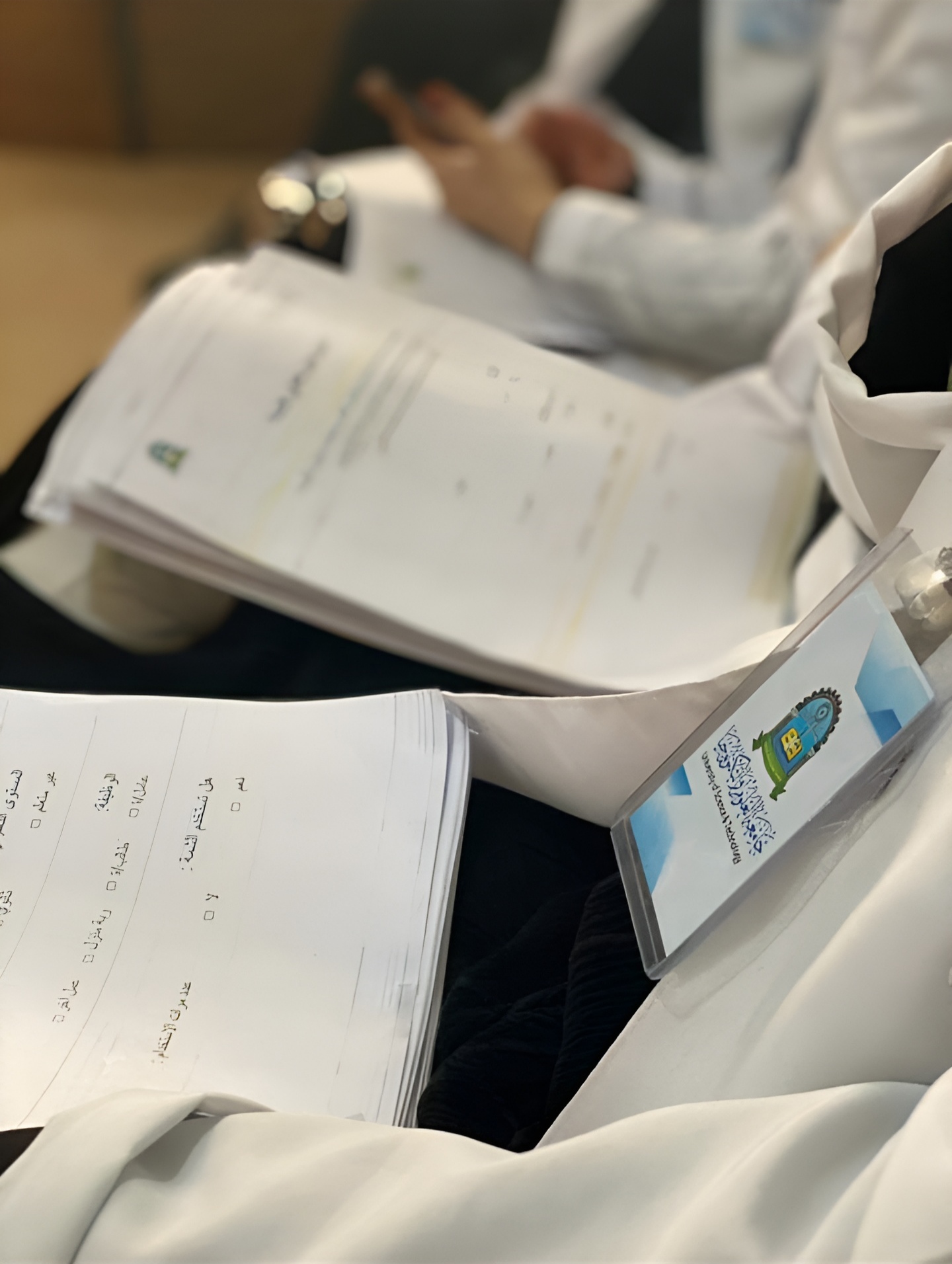
Dr. Huda Ali Al-Alawi
Director of the Women’s Center for Studies and Training – University of Aden
(Consultant for Women in Higher Education and Academia in Yemen)
Introduction:
Numerous local, regional, and international conferences and seminars have emphasized the importance of education in general and university education in particular in their studies, research, and recommendations. Interest in university education and the development of its various tools to address the changes of this era has increased, prompting higher education institutions to respond to surrounding modern scientific and technological changes and innovations.
Through education, women can acquire learning mechanisms and ways to deal with life situations through the abilities and skills that education provides in organizing thinking, analyzing problems, and making crucial life decisions. Education also enables them to manage their lifestyles purposefully, insightfully, and wisely.
Educated women play a crucial role in addressing societal challenges, particularly population issues. Recent research and strategies in the field of population and development in Yemen seek to link tackling population growth to educating females; it’s a fundamental condition upon which Yemen relies to achieve stability in population growth.
University education (Bachelor’s degree system) witnessed significant growth after Yemeni unification on May 22, 1990, both in terms of the increasing number of enrolled students and the expansion of its educational institutions. Today, Yemeni government universities accommodate over 170,000 male and female students. Comparing these numbers to those of the 1970s reflects the scientific progress the country has witnessed. For example, in the 1970s, there were only two universities: Sana’a University and Aden University. At their inception, the number of students in each did not exceed 114.
The non-governmental higher education sector in Yemen emerged in the mid-1990s, coinciding with the emergence of many non-governmental universities in the Arab region, such as the Gulf countries and Egypt.
- Landmark Achievements in the Academic Education of Yemeni Women
The higher education of females has promising benefits that will only be realized with improved education quality, especially university education, which must be vocationally oriented in its content. It should reflect the social and investment function of education, be a personal aspiration for women, stem from their conscious needs, and instill confidence in their abilities to shoulder responsibilities in a complementary—not differential—role with men to perform their social roles and tasks.
Yemeni women enjoy a prestigious position in the academic and scientific research fields. This is particularly evident with the establishment of the first Women’s Studies Unit at Sana’a University in 1993, which evolved into the Center for Experimental Research and Women’s Studies. The center achieved significant accomplishments, as did the Gender Center at Aden University, which continues to strive for success through advocacy and mobilization for gender equality among Yemeni women in general and academics in particular. It highlights the urgent need to empower female researchers and scientists to overcome cultural and social barriers and establish support systems, such as mentoring programs and advocating for gender equality policies, which significantly enhance the presence of women in academia in Yemen.
- Roles and Responsibilities of Yemeni Women in Academia and Scientific Research
Yemeni women play a huge role in academia, seriously contributing to education and scientific research. Here are some of their key roles and responsibilities:
- Teaching and Instruction: Many women hold academic positions as faculty members in universities and colleges, passing on knowledge and educating new generations.
- Scientific Research: Women actively conduct and publish research in various scientific fields, expanding knowledge and offering solutions to social and economic issues. They participate in conferences and workshops, exchanging ideas and experiences with other academics nationally and internationally.
- Academic Supervision: Women supervise student projects, master’s theses, and doctoral dissertations, developing research skills through problem identification, interpretation, analysis, result acquisition, discussion, and the formulation of recommendations and proposals presented to relevant authorities and decision-makers.
- Curriculum Development: Women contribute to developing curricula that meet societal needs and modern educational trends.
- Academic Leadership: Some women hold leadership positions in universities as deans, members of university councils, and department heads, showcasing their decision-making capabilities in academic and administrative matters.
- Mentoring and Guidance: Women provide support and guidance to young female students, helping them determine their academic and professional paths.
- Participation in Academic Organizations: Women participate in academic organizations and scientific societies aimed at empowering women in research, education, and sharing best practices.
- Community Engagement: Academic women offer advice and consultations, and participate in community events, highlighting their role in improving social and economic conditions.
- Promoting Women’s Rights: Through their research and participation in academic events, women contribute to promoting women’s rights and addressing their issues, positively influencing societal perceptions.
- Fostering Gender Collaboration: Women’s participation in scientific research encourages collaboration between male and female researchers, leading to better research project outcomes.
- Expanding Research Topics: Women expand the scope of research topics to include social, medical, and environmental issues, better reflecting societal needs.
- Providing Role Models: Successful women in scientific research serve as role models for the next generation of female researchers, encouraging more girls to enter research fields.
- Obstacles and Challenges Faced by Yemeni Women in Academia
Yemeni women in academia face challenges hindering their pursuit of ambitions. Key challenges include:
- Traditions and Societal Views: Some Yemeni communities still hold traditional views that limit women’s roles in education and research, hindering their academic aspirations.
- Lack of Family Support: Women may lack family support, impacting their ability to persevere in higher education.
- Barriers to Higher Education: Access to higher education is often restricted for women in certain areas, limiting their opportunities for postgraduate studies.
- Insufficient Facilities and Resources: The lack of necessary facilities and educational resources in some universities affects the quality of education available to women.
- Employment and Promotion Discrimination: Women face discrimination in employment and promotion opportunities in academic institutions, hindering their professional advancement.
- Underrepresentation in Leadership: Women are underrepresented in leadership and administrative positions in universities, reducing their influence on decision-making.
- Economic Pressures: Many women face economic pressures that hinder their ability to complete higher education or scientific research.
- Juggling Work and Studies: Women are often forced to work to meet their financial needs, affecting the time they dedicate to studying or research.
- Insecurity: Insecurity in some regions of Yemen impacts women’s ability to safely travel and participate in academic activities.
- Need for Support Programs: A crucial need exists for support programs tailored to academic women, including training, mentoring, and counseling.
- Funding Difficulties: Women face difficulties obtaining funding for their research, limiting their ability to achieve their goals.
The balancing act between personal and professional life is further complicated by significant family responsibilities. Women often shoulder heavy double burdens, weakening their ability to focus on their studies or research.
- Empowerment and a Futuristic Vision
Yemeni women academics face numerous hurdles that block their progress. Overcoming these challenges requires a combined effort from society, the government, and educational institutions to create a supportive environment where women can achieve their academic and professional goals.
- Improving Education and Research:
- Many women are striving hard to earn Masters and PhDs in various fields.
- There’s a need to focus research on local issues like sustainable development, women’s rights, and public health.
- Expanding Academic Networks:
- Raise awareness about the importance of girls’ education and support education in local communities.
- Create training programs and courses to boost women’s academic and professional skills.
- Research women’s rights issues; women academics are working to highlight the challenges women face and offer practical solutions.
- Engage in community dialogue on women’s issues and contribute to developing policies that enhance their rights.
- Continuous Professional Development:
- Continuously improve academic and administrative skills through workshops and training courses.
- Embrace innovation and explore new areas in research and teaching, such as using technology in education.
- Supporting Women’s Organizations:
- Participate in NGOs: Get involved in civil society organizations that support women’s rights and their role in academia.
- Engage with the community and boost the role of women academics in community events and activities.
- Summary:
Yemeni women are essential to academia. They contribute to developing education and scientific research and play a vital role in society through teaching, leadership, and research. They’re working to strengthen their position and create positive change by offering new perspectives, increasing the number of active researchers, and encouraging innovation. Women are actively contributing to knowledge development and progress in various academic fields.
Yemeni women academics face numerous challenges hindering their progress. These can be addressed through a collaborative effort from society, the government, and educational institutions to ensure a supportive environment that empowers women to achieve their academic and professional aspirations.
Yemeni women academics aim for further progress in education and research, focusing on social and rights issues, improving skills, strengthening leadership, and expanding networks. They’re striving to make a positive impact on academia and society as a whole.

